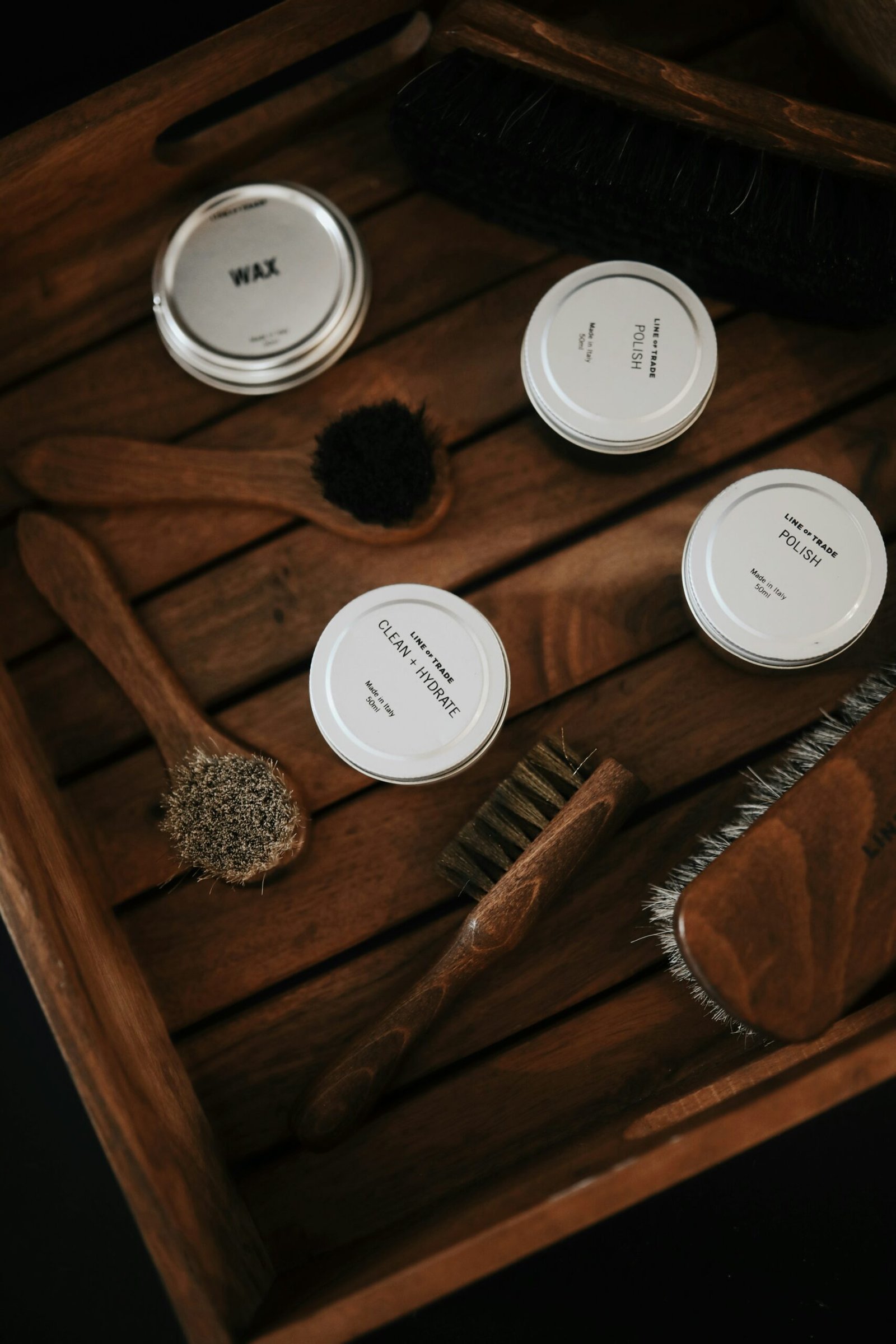Introduction to Eco-Friendly Cleaning
Eco-friendly cleaning is a practice that focuses on using natural and non-toxic products to maintain cleanliness while minimizing harm to the environment and promoting personal health. This approach to cleaning is becoming increasingly popular as people become more aware of the detrimental effects conventional cleaning agents can have on both our planet and our well-being. The core principle of eco-friendly cleaning is to replace synthetic chemicals found in conventional products with natural alternatives that are biodegradable, minimally processed, and derived from renewable resources.
One significant advantage of eco-friendly cleaning is its positive impact on environmental sustainability. Traditional cleaning products often contain harsh chemicals such as phthalates, phosphates, and volatile organic compounds (VOCs) that can pollute the air and water. When these substances wash down the drain, they find their way into waterways, contributing to pollution and harming aquatic life. By choosing biodegradable and plant-based cleaners, you reduce the environmental footprint of your cleaning routine, ensuring that fewer harmful chemicals enter ecosystems.1
Additionally, eco-friendly cleaning products offer substantial health benefits. Many conventional cleaning agents release toxic fumes that can degrade indoor air quality and trigger respiratory issues, allergic reactions, and skin irritations. Studies have shown that prolonged exposure to certain chemicals in these products can lead to severe long-term health risks, including hormonal imbalances and an increased risk of chronic diseases.2 In contrast, natural cleaning products typically contain fewer allergens and irritants, making them a safer choice for households, especially those with children, pets, or individuals with sensitivities.
Understanding the importance of eco-friendly cleaning and its advantages can empower homeowners to make conscious choices that benefit both their immediate living environments and the broader ecosystem. As we delve further into specific practices and products in eco-friendly cleaning, it becomes evident that adopting sustainable home maintenance practices is a step toward a healthier, more sustainable future.
Benefits of Using Eco-Friendly Cleaning Products
Switching to eco-friendly cleaning products offers a multitude of benefits, not just for individual households, but for the environment at large. One of the primary advantages is the significant reduction in chemical exposure within the home. Conventional cleaning products often contain harsh chemicals that can be harmful when inhaled or come into contact with skin. On the other hand, eco-friendly alternatives are generally made with natural ingredients, providing a safer environment, especially for families with young children and pets.
Furthermore, eco-friendly cleaning products contribute to lowering environmental pollution. Traditional cleaning agents may contain chemicals that, when washed down the drain, can contaminate soil and water supplies. By opting for sustainable products, consumers can minimize their ecological footprint and help preserve vital natural resources. This not only benefits local ecosystems but also contributes to broader global environmental goals.
Another significant advantage is the potential for cost savings. Many eco-friendly cleaning solutions are designed to be multi-purpose, reducing the need to purchase multiple specialized products. For example, a simple mixture of vinegar and baking soda can clean surfaces, remove odors, and even unclog drains. Additionally, these natural ingredients often cost less than their commercial counterparts, offering financial savings over time.
Eco-friendly cleaning products can also extend the lifespan of household items. Harsh chemicals can wear down materials and surfaces more quickly, necessitating frequent replacements. Gentler, natural cleaning agents help preserve the integrity of these items, reducing the frequency of costly repairs and replacements.
The transition to eco-friendly cleaning products is supported by numerous testimonials and case studies from households that have successfully made the switch. These real-life examples provide persuasive evidence of the tangible benefits, illustrating how adopting sustainable cleaning practices can enhance both personal well-being and environmental health.
DIY Eco-Friendly Cleaning Solutions
Creating homemade eco-friendly cleaning solutions is a practical and sustainable way to maintain a clean home while minimizing environmental impact. Utilizing common household ingredients like vinegar, baking soda, lemon, and essential oils, you can craft effective cleaners for various needs. Below are step-by-step guides and recipes for different eco-friendly cleaning solutions.
All-Purpose Cleaner
Ingredients:
- 1 cup white vinegar
- 1 cup water
- 2 tablespoons baking soda
- 10-15 drops of your favorite essential oil (tea tree, lavender, or lemon work well)
Instructions:
Mix the vinegar and water in a spray bottle. Add the baking soda and essential oil. Shake well before each use. This all-purpose cleaner is perfect for countertops, sinks, and other general surfaces.
Window Cleaner
Ingredients:
- 2 cups water
- 1/4 cup white vinegar
- 1/2 teaspoon dish soap
Instructions:
Combine all ingredients in a spray bottle and shake gently. Spray on windows and wipe with a microfiber cloth for a streak-free shine.
Bathroom Disinfectant
Ingredients:
- 1 cup white vinegar
- 1 cup water
- 15-20 drops tea tree oil
Instructions:
Mix the vinegar, water, and tea tree oil in a spray bottle. Spray on bathroom surfaces and let sit for a few minutes before wiping clean. Tea tree oil’s natural disinfectant properties help eliminate germs without harsh chemicals.
Carpet Deodorizer
Ingredients:
- 1/2 cup baking soda
- 20 drops of your preferred essential oil (such as lavender or eucalyptus)
Instructions:
Combine the baking soda and essential oil in a jar. Sprinkle generously over the carpet, let sit for 15-20 minutes, then vacuum thoroughly. This will leave your carpet smelling fresh and clean.
Safety Tips and Storage Advice
When making and using these DIY eco-friendly cleaning solutions, adhere to the following safety tips and storage guidelines:
- Label all containers clearly to avoid confusion.
- Store solutions in a cool, dark place to prolong their efficacy.
- Keep all cleaning solutions out of children’s reach and avoid mixing with commercial cleaning products to prevent unwanted reactions.
- Wear gloves while cleaning to protect your skin from irritation.
Many individuals have shared their positive experiences with these homemade cleaners, attesting to their effectiveness. By incorporating these DIY eco-friendly cleaning solutions into your home maintenance routine, you contribute to a healthier environment and a safer living space.
Going Beyond Products: Sustainable Cleaning Practices
Engaging in eco-friendly cleaning extends beyond selecting sustainable products and encompasses adopting practices that contribute to a greener home environment. One practical approach is the use of reusable cleaning cloths instead of disposable paper towels. Microfiber cloths, for instance, are highly effective for various cleaning tasks and can be washed and reused numerous times, significantly reducing waste.
Water conservation is another critical aspect of sustainable cleaning. Simple techniques, such as turning off the tap while scrubbing surfaces or using a bucket of water instead of running water, can make a substantial difference. Additionally, investing in energy-efficient cleaning equipment, like vacuum cleaners with HEPA filters or low-wattage appliances, can decrease energy consumption while maintaining cleaning efficacy.
Maintaining a sustainable cleaning routine also involves the proper recycling and disposal of cleaning materials and chemicals. Many household products come in recyclable packaging, so be diligent about sorting them appropriately. Furthermore, some municipalities offer hazardous waste disposal programs for chemicals that shouldn’t end up in landfills, such as certain detergents and disinfectants.
Experts in green living emphasize the importance of these practices in reducing environmental impact. Environmental organizations often advocate for measures like using homemade cleaning solutions with natural ingredients, which are both effective and non-toxic. Vinegar, baking soda, and lemon juice, for example, can be powerful allies in your cleaning arsenal without the harmful side effects of conventional chemicals.
Incorporating these eco-friendly cleaning practices not only helps in creating a healthier living space but also supports broader environmental sustainability goals. By committing to reusable items, conserving water, using energy-efficient tools, and responsibly managing waste, you can significantly contribute to the reduction of your environmental footprint while enjoying a clean and healthy home.


